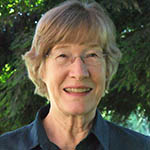 Professor Sara Harkness’s research was recently written up in a Brazilian newspaper, a recent interview O Globo. You can find the article here, http://oglobo.globo.com/sociedade/educacao/criacao-de-filhos-pelo-mundo-filao-editorial-objeto-antropologico-20781234, or see English translation below.
Professor Sara Harkness’s research was recently written up in a Brazilian newspaper, a recent interview O Globo. You can find the article here, http://oglobo.globo.com/sociedade/educacao/criacao-de-filhos-pelo-mundo-filao-editorial-objeto-antropologico-20781234, or see English translation below.
Parenting throughout the world is an editorial trend and anthropological object
Books about parenting among the Dane joins others about the French and the Dutch
RIO – The book “The Danish Way”, which has just arrived in Brazil, has a leading predecessor in the editorial market, also from the Fontanar label, from Companhia das Letras: “French Children Don’t Throw Food” by American journalist Pamela Druckerman . Launched in Brazil in 2013, the title ran for several weeks on the best selling lists in the country – and, according to Nielsen data, is already considered a long seller because of the large volume of sales over a long period. The book had a monthly average of 1,700 copies sold in the last three years.
Pamela presents a limit known as “cadre”, in which French children have autonomy and freedom up to a certain limit – beyond that, remains the authority of parents. The idea of a possible balance between the needs of the parents and the child seemed to enchant the world, and it gave the journalist the opportunity to publish two more books on the subject.
In addition to the books on child raising in France and Denmark, there are also titles on the world’s “happiest children”, which would be Dutch, according to Rina Mae Acosta’s and Michele Hutchison “The Happiest Kids in the World”; and even those who bring global aspects of education, such as Christine Gross-Loh’s “Parenting without borders.” On Amazon, books in the category “Parents and relationships” total more than 220.000.
Ways of educating around the world have been the subject of research since the 1970s for American anthropologist Sara Harkness, from the University of Connecticut. Along with her husband, who is also a university researcher, Sara has lived for years in countries such as Netherlands and Kenya — where the first of the couple’s four children was born — in search of different cultural models for raising children. To them, the couple gave the name of “parental ethnoteories”.
— They are examples of a group shared ideas about the place of parents, children, family, development … And many of them are implicit, but they are in situations like: when the baby cries at night, do you pick him up soon? Or go back to sleep, letting him cry? — exemplifies Sara, stressing, however, that her work does not seek to generalize characteristics of countries. — There is a very great contrast between cultures on issues such as holding babies on their lap. There is, in Korea and Africa, for example, a strong idea that babies should be held in their lap enough, to be physically close. Another point that brings a lot of cultural differences is sleep planning: some groups believe that children should sleep next to their mother, but in countries like the United States, others argue that babies should stay in separate beds and bedrooms.
Nuances like these, and even more surprising ones, are in the French documentary “Babies”, by director Thomas Balmès, who accompanied the lives of four babies for a year in Mongolia, Namibia, the United States and Japan.
For Sara, parents’ interest in products that portray the different ways of educating the world correspond to the intense process of globalization:
— In times of rapid social transformation, people are relying less on what they have learned during their own growth.